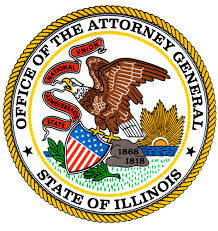
Chicago —(ENEWSPF)—October 13, 2017
By: Office of Attorney General Madigan
Attorney General Lisa Madigan today announced a lawsuit against the operators of an alleged student loan debt relief scam that took advantage of struggling student loan borrowers by charging large upfront fees for no help in reducing their debt loads.
Madigan filed suit in the Circuit Court of Cook County against two suburban Wood Dale, Illinois companies, one operating as Federal Student Loan Relief or Federal Tax Relief, and the other as Teldebt, as well as the owners of each entity. The companies charged as much as $700 to provide document preparation services that are already available to borrowers for free. This is the ninth lawsuit Madigan has filed against student loan debt relief scammers.
Madigan’s lawsuit is part of a national crackdown, “Operation Game of Loans,” announced today in partnership with the Federal Trade Commission (FTC) and attorneys general from across the country. Operation Game of Loans is the first state-federal law enforcement initiative targeting student loan debt relief scams that falsely promise to help reduce or forgive student loan debt burdens and pretend to be affiliated with the government or consumers’ loan servicers. The announcement includes more than 36 actions by the FTC and the attorneys general.
“Student loan debt relief scams are successful because borrowers are not receiving the information they need to repay their loans,” Madigan said. “Student loan debt relief scams rob borrowers of the money they could be using to pay down their student loan debt.”
Madigan’s lawsuit alleges the companies engaged in several illegal tactics, including:
- They claimed to have expertise in navigating the debt relief process and adopted a government-sounding name to give the impression they are legitimate.
- They used high-pressure sales tactics, including claiming that the government can double interest rates on defaulted student loan debt, in order to get consumers to sign up for their purported services.
- They charged as much as $700 upfront to allegedly provide borrowers with debt relief, when, in reality, all they provided was document preparation services that are already available to borrowers for free.
- In some cases, one of the companies illegally used a borrower’s Federal Student Aid ID to apply for and accept different federal student loan repayment options on a consumer’s behalf without their authorization.
In addition to student loan relief, one of the companies often sold useless federal tax debt relief services by claiming that the IRS can take away everything a consumer owns or pretending to actually be the IRS in calls with consumers.
In addition to today’s lawsuit, Madigan’s office is currently investigating over 50 other student loan debt relief scam operations.
“Winter is coming for debt relief scams that prey on hardworking Americans struggling to pay back their student loans,” said Maureen K. Ohlhausen, FTC Acting Chairman. “The FTC is proud to work with state partners to protect consumers from these scams, help them learn how to spot a scam, and let them know where to go for legitimate help.”
How to Avoid Student Loan Debt Relief Scams
To assist borrowers with information about their repayment options, Madigan created a free Student Loan Helpline at (800) 455-2456 (TTY: 1-800-964-3013). More information about loan repayment, avoiding default or to file a complaint about loan servicing can also be found on her website.
For information about how to avoid falling victim to these schemes, borrowers can also visit the FTC’s website, ftc.gov/StudentLoans. For information about existing repayment and forgiveness programs available to borrowers at no cost, visit StudentAid.gov.
Consumers should remember that only scammers promise fast loan forgiveness, and that scammers often pretend to be affiliated with the government or loan servicers. To avoid scams, consumers should never pay an upfront fee for help or share their Federal Student Aid ID with anyone.
Consumers can apply for loan deferments, forbearance, repayment, and forgiveness or discharge programs directly through the U.S. Department of Education or their loan servicer at no cost; these programs do not require the assistance of a third-party company or payment of application fees. For federal student loan repayment options, visit StudentAid.gov. For private student loans, contact the loan servicer directly.
Assistant Attorneys General Beth Deucher and Gregory W. Jones are handling the lawsuit for Madigan’s Consumer Protection Division.
Source: www.illinoisattorneygeneral.gov








